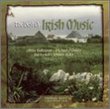| All Artists: Wild Swans Title: Bringing Home Members Wishing: 0 Total Copies: 0 Label: Warner Bros / Wea Release Date: 10/25/1990 Genres: Alternative Rock, Pop, Rock Styles: Hardcore & Punk, New Wave & Post-Punk Number of Discs: 1 SwapaCD Credits: 1 UPC: 075992569729 |
Search - Wild Swans :: Bringing Home
 | Wild Swans Bringing Home Genres: Alternative Rock, Pop, Rock
|
CD DetailsSimilar CDs
|
CD ReviewsClassic late 80's angst cblo | Idaho, USA | 02/24/2008 (5 out of 5 stars) "This is a very good, very underrated gem from the late 80's mope rock scene. A re-issue of their '88 US debut take pages from the Smiths with a dash of Cure/Robert Smith lyricism. Catchy, Byrdsy guitars, chamber-influenced synths and uptempo pop sensibility mixed with accutely despondant lyrics (see: "The Worst Year of My Life" or "Whirlpool Heart". Makes me remember Doc Martens, cigarettes and the hubris of youth." Charming and uplifting; a lost gem from the post-punk scene. Angry Mofo | 04/17/2010 (4 out of 5 stars) "The music of The Wild Swans will be instantly familiar to anyone who likes post-punk. It's right between The Cure circa "In Between Days" and The Comsat Angels circa "After The Rain" -- big, bright, jangly songs with lots of synths, theatrical vocals, and a fetching touch of melancholy. There are a few interesting subtleties that emerge after a few listens, like the lyrical solo at the end of "Bitterness." For the most part, though, the songs rely on very standard rhythmic patterns (you've probably heard the guitar lines from "Young Manhood," "Bitterness," "Whirlpool's Heart," "Bringing Home The Ashes" and "Mythical Beast" before, on some college-rock album or other). What makes the album stand out is the persona created by the frontman, Paul Simpson. Like many post-punk singers, he started out singing in a highly foreboding, dramatic baritone. On his band's debut single "The Revolutionary Spirit," he sounds like a combination of Ian Curtis and Ian McCulloch. On their debut album Bringing Home The Ashes, he mellows out and becomes a little warmer, while retaining his charmingly mannered diction. Perhaps Ian Curtis might have done the same, had he lived to see 1988. Simpson creates a different image, though. On this album, he's a living throwback, a character out of a novel by A.J. Cronin. He uses deliberately old-fashioned expressions like "here it comes, young manhood." Man, that would sound very different if sung by Frankie Goes To Hollywood. But Simpson means it in the most earnest, bright-eyed way, and his charming voice actually makes it convincing. Elsewhere, he uses phrases like "blame it on the bottle" and "fallen women" to describe friends who have gone astray. It's very Green Years. You can just imagine this upstanding young fellow dutifully studying philosophy and religion in a Victorian city while undergoing the usual trials and temptations. Religion is a recurring theme of the album. Generally the songs depict it as an integral part of the protagonist's life, he's not trying to rebel against god in a Trent Reznor-like fashion. But at the same time, the album is not really about making grandiose affirmations of faith, or making a big deal out of one's spiritual quest, a la U2. Our Cronin character is a nice boy who believes in god, but the point of the album is to portray different facets and difficulties of his life. He admits that he has "strayed," then airily sings, "Lord, I'm in your hands on judgment day." I think this sort of emotional balance could make the album appeal to many different listeners; believers could appreciate how the protagonist's faith helps him maintain his generally optimistic tone, and non-believers could be charmed by that tone without feeling like they're being preached to. Similarly, our Cronin character is also a patriotic young man, expressing such sentiments as, "the heart of England will never die." But this is also balanced out with the melancholy intonation, "bringing home the ashes / it's more than I can bear." All these weighty topics are treated in a notably healthy way -- they are not the driving obsession of the protagonist's life, but rather, each is a different and important source of both happiness and sadness. I like albums that describe conflict and darkness, but I have to say, it also takes a lot of skill to depict a truly healthy and well-rounded personality, that doesn't come across as preachy or irritatingly "perfect." That's really the amazing thing here -- for all that Simpson's character is a blatant Cronin throwback who talks in archaisms, somehow in the end he sounds very normal. I think it's due to Simpson's voice, which is refined yet warm and calm, and never sounds pretentious or self-righteous. He's optimistic, but not simperingly happy; he mentions his poverty and wistfully says things like, "pain was April rain upon my skin," "I was born guilty and I'll die lonely," and "Lord, this is the worst year of my life." But even these gloomy words are delivered in a light-hearted way -- clearly they're not grinding him down. These qualities are rare in popular music. Bringing Home The Ashes is not the most innovative album to come out of the post-punk scene, but it can be, if I may use a hackneyed word, inspiring. That alone makes it worthwhile to rediscover this obscure band." Wild again current blue | USA | 05/02/2008 (3 out of 5 stars) "i love this album but they did not do good job on remastering whoever did it, thanks anyway for making this cd available again."
|

 Track Listings (10) - Disc #1
Track Listings (10) - Disc #1





